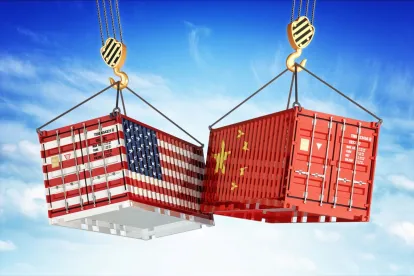Last week, on June 3, 2021, President Biden issued an Executive Order (“E.O.”) prohibiting U.S. investments in designated Chinese companies deemed to undermine “the security or democratic values of the United States and [its] allies” (see here). The E.O. is the most recent in a long list of foreign policy actions seeking to put pressure on China using economic tools to curtail China’s surveillance and intelligence activities against the United States. The E.O. amends and supersedes Trump’s Executive Order 13959 (“E.O. 13959”), as amended by Executive Order 13974 (“E.O. 13974”), which similarly prohibited U.S. persons from engaging in certain transactions with companies placed on the Defense Department’s Chinese Communist Military Companies (“CCMC”) list. The E.O. contains a new list, the “Chinese-Military Industrial Companies” (“CMIC”), that replaces the CCMC for purposes of prohibiting certain transactions by U.S. persons. The new CMIC list includes many of the previously-designated companies on the CCMC list, including, for example, Huawei and Hikvision. While previous prohibitions on these companies focused on export restrictions, the U.S. government is tightening the avenues for U.S. companies to safely conduct business with many Chinese behemoths. For U.S. companies that deal regularly with China, it would make sense to think more broadly about those business relationships as companies develop their strategic plans.
According to the Trump Administration, E.O. 13959 was prompted by China’s use of U.S. capital to fund its military modernizations and intelligence, including by developing weapons of mass destruction and malicious cyber activities, which is a national security threat to the United States (see here). In particular, China’s Military-Civil Fusion policy compels private Chinese companies to support the Chinse military and intelligence activities. In turn, the Chinese companies raise capital by selling securities to U.S. investors that trade on public exchanges in the United States and abroad. The most recent E.O. expands the scope of E.O. 13959 due to the “unusual and extraordinary threats” posed by Chinese surveillance technology.
What is the Immediate Effect of the E.O.?
At a high level, the new E.O. prohibits U.S. persons from engaging in the purchase or sale of any publicly traded stock of listed companies (currently comprised of 59 companies). The term “publicly traded securities” includes any “security,” as defined in 15 U.S.C. 78c(a)(10), denominated in any currency that trades on a stock exchange or through the method of trading that is commonly referred to as “over-the-counter,” in any jurisdiction (see here).
The E.O. allows the Treasury and State Departments to designate additional companies deemed to:
-
operate or have operated in the (1) defense and related materiel sector or (2) the surveillance technology sector of the economy of the PRC; or
-
own or control, or to be owned or controlled by, directly or indirectly, a person who operates or has operated in any sector described above, or a person who is listed in the Annex to this E.O. or who has otherwise been determined to be subject to the prohibitions in this E.O.
Unless subject to other prohibitions, U.S. persons are free to engage in securities transactions with other Chinese companies.
Which Chinese Companies are Impacted by the E.O.?
Currently, President Biden has listed 59 companies as CMIC. Among the designations are notable companies such as Huawei, Aviation Industry Corp. of China, and China National Offshore Oil Corp., as well as large telecommunication companies such as China Mobile Limited, China Telecommunications, and China Unicom (for the full list, see the Annex to the E.O., here).
The U.S. Department of the Treasury’s Office of Foreign Assets Control (OFAC) will also list these 59 entities on its new Non-SDN Chinese Military-Industrial Complex Companies List (“CMIC Program”) (see here). As noted above, the CMIC list could be expanded by the Treasury and State Departments. If this were to occur, we expect that the Biden Administration will provide a grace period between the designations and the effective date of the prohibitions. Given the potential of future, additional designations, U.S. persons are encouraged to periodically screen Chinese companies against OFAC’s Sanctions List Search to ensure that the company is not a CMIC-designated entity (see here). However, only entities whose names exactly match the names of the entities on the CMIC List are subject to the prohibitions (see here).
These prohibitions may apply to subsidiaries of the CMIC-designated entities only if the subsidiary is publicly listed (see here). Thus, OFAC’s 50 percent rule does not apply to entities listed solely because their parent companies are designated entities.
When do the Prohibitions Take Place and What is Permitted?
The prohibitions against the designated entities will take effect August 2, 2021. While U.S. persons are permitted to continue to engage in certain transactions with these companies, it is advisable to start making divestiture plans and rethink your business strategies with Chinese entities overall. The E.O., as well as OFAC guidance, have made clear that divestitures from the designated entities—either in whole or in part—are allowed until June 3, 2022. For entities designated at a future date, U.S. persons will have 365 days to divest their security interests.






 />i
/>i
